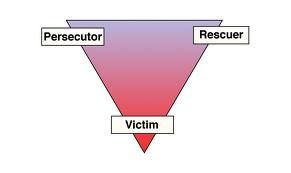Let's not go crazy.
Good interpersonal interactions simply require an amount of goodwill and generosity, even in the face of hostility.
"Crazy" might not be the right term to use in this discussion, but I basically agree with the rest.
---Futilitist
Let's not go crazy.
Good interpersonal interactions simply require an amount of goodwill and generosity, even in the face of hostility.
Alright then.
Can we conclude this now, and, in the spirit of the New Year, make a new beginning?
Are you familiar with the Libet experiment? There is very good reason to believe that the concept of free will may not be valid. That would call into question the whole concept of individual responsibility, as you frame it. Check out:
http://en.wikipedia.org/wiki/Neuroscience_of_free_will
Also, at the group level, assigning individual responsibility is often political and based on power. I believe that "responsibility" is largely shared in groups, but that it is sometimes convenient to assign responsibility to particular individuals in order to maintain group cohesiveness. I think humans are semi consciously aware of this, and this is evident in our language and expressions. For example, what is a "fall guy"? A fall guy is unfairly given individual responsibility for the actions of others.
Correctly determining individual responsibility is a can of worms.
Beware. One day you might need someone who would understand you, relate to you, and even defend you: and there might not be anyone left who would be willing to do so.
I know, I had that in mind, too.
I am also addressing my post to other posters here.

wiki said:The three roles
The model posits three habitual psychological roles (or roleplays) which people often take in a situation:
.The person who plays the role of a victim
.The person who pressures, coerces or persecutes the victim, and
.The rescuer, who intervenes, seemingly out of a desire to help the situation or the underdog.
Of these, the "rescuer" is the least obvious role. In the terms of the drama triangle, the "rescuer" is not a person helping someone in an emergency. It is someone who has a mixed or covert motive that is actually benefiting egoically in some way from being "the one who rescues". The rescuer has a surface motive of resolving the problem, and appears to make great efforts to solve it, but also has a hidden motive to not succeed, or to succeed in a way that they benefit. For example, they may feel a sense of self-esteem or status as a "rescuer", or enjoy having someone dependent or trusting of them - and act in a way that ostensibly seems to be trying to help, but at a deeper level plays upon the victim in order to continue getting their payoff. As Transactional Analyst Claude Steiner says:
... the Victim is not really as helpless as he feels, the Rescuer is not really helping, and the Persecutor does not really have a valid complaint.
The situation plays out when a situation arises and a person takes a role as victim or persecutor. Others then take the other roles. Thereafter 'the two players move around the triangle, thus switching roles', so that for example the victim turns on the rescuer, the rescuer switches to persecuting -- or as often happens the rescuer ends up entering the situation and becoming a victim.
The covert purpose for each 'player' and the reason the situation endures is that each gets their unspoken (and frequently unconscious) psychological wishes/needs met in a manner they feel justified, without having to acknowledge the broader dysfunction or harm done in the situation as a whole. As such, each player is acting upon their own selfish 'needs', rather than acting in a genuinely responsible or altruistic manner. Thus a character might 'ordinarily come on like a plaintive victim; it is now clear that he can switch into the role of Persecutor providing it is "accidental" and he apologises for it'.
The game is similar to the melodrama of hero, villain, and damsel in distress (such as Dudley Do-Right, Snidely Whiplash, and Nell Fenwick).
In transactional analysis, the drama triangle is sometimes referred to in the context of mind games - 'the unconscious games played by innocent people' - such as: – Why Don't You/Yes But; If It Weren't For You; Why does this Always Happen to Me?; See What You Made Me Do; You Got Me Into This; Look How Hard I've Tried; I'm Only Trying to Help You; and Let's You and Him Fight.
The relationship between the victim and the rescuer can be one of codependency. The Rescuer keeps the Victim dependent on them by playing into their Victimhood. The Victim gets their needs met by having the rescuer take care of them.
I will step in here to point out that what the readers have just witnessed is a classic drama triangle.
http://en.wikipedia.org/wiki/Karpman_drama_triangle
Hopefully this is the last word on just this side topic, but not the last word on the original topic which is Asperger's syndrome.
